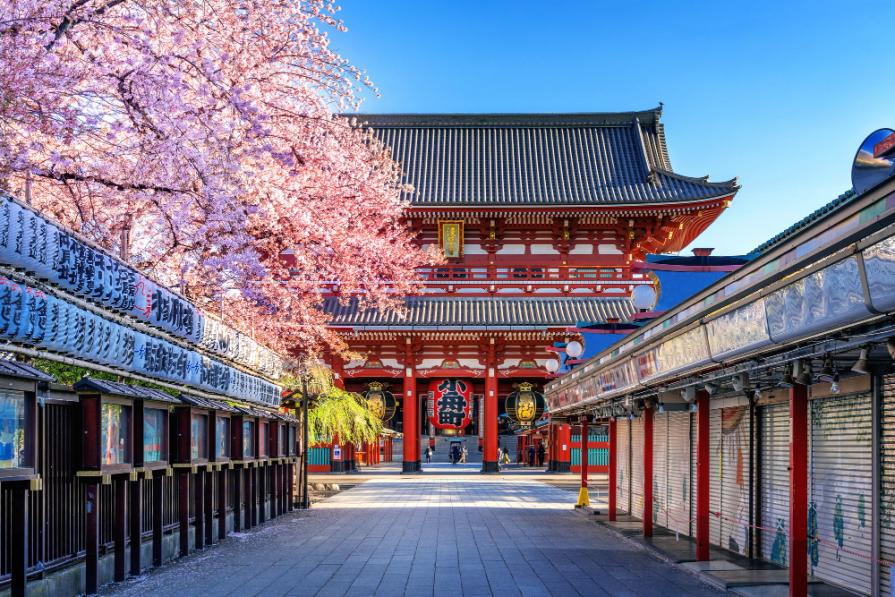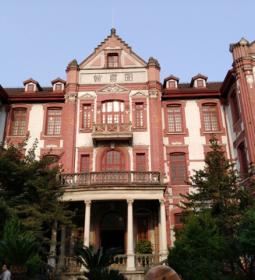It is generally believed that in Japan it is very expensive: transportation, housing, food, entertainment. We share the secrets of how to competently and profitably plan a trip.

Let's start with transport
- The national Japanese air carrier JAL will give two free domestic flights. Agree, a cool bonus! Take a note.
- Prefer trains? Travel cards will help out. For example , during student holidays, the "18-year-old ticket" is valid. Despite the name, they can use absolutely any, young at heart, regardless of the figure in the passport.
- The price of a ticket for an intercity bus is more than acceptable, but not at the expense of comfort. An isolated canopy chair, padded seat and small cushion - what else do you need for a budget trip?
- Lovers of water transport will appreciate the ferries, which have their own travel system and the ability to choose the level of comfort. A shared cabin for 8 people or a private one with a balcony, you choose.
- Sports lovers will love the idea of taking a bike. There are more than enough rental points and cycling routes in cities and between them . Go for it!
Housing: which is more profitable?
- When choosing Tokyo, be prepared for metropolitan prices, especially if the choice fell on a spacious room in a 5-star hotel with a gorgeous view in the city center.
There is an alternative : a small cozy room in a 2-3-star hotel in residential areas will be cheaper, and transportation costs will be less than the overpayment for a hotel in the center. - An interesting feature of hotels in Japan is the eco-option: no cleaning in the room. In return - a discount on accommodation or a free cup of coffee.
- Those who are alien to the noisy metropolitan life should take a closer look at the suburbs of Tokyo. Accommodation is also cheaper there, and this is a great opportunity to see the " real Japan" that you've read about in books or seen in the movies.
It's cheaper in the suburbs
- Not far from Tokyo, the town of Kawagoe - Little Edo is conveniently located.
It is here that you can see how Tokyo was before grown in the metropolis: lovely houses in the old style with a tiered triangular roofs and magical atmosphere. - Tachikawa is another convenient location in terms of transportation and housing prices. And lovers of mountain landscapes will appreciate Hachioji. And all this is not far from the capital!
- If you intend to visit one of the oldest cities in Japan - Kamakura - it is convenient to stay in Kawasaki. At the same time, visit a night tour of the factories.
- For those who dream of seeing Kyoto ( for a moment, the ancient capital of Japan), the neighboring cities of Otsu and Kobe will be an excellent accommodation option.
What / where to eat?

Arriving in a new country, of course, it is interesting to get acquainted with the local cuisine. It is a special pleasure to immerse yourself in the atmosphere through the gastronomic habits of the locals.
Japan is associated with sushi, sashimi and other raw fish dishes , all worth trying. However, if you wish , you can visit a restaurant with ordinary European food - there are plenty of them in Japan.
Prices are different :
- Numerous chain establishments are a great opportunity to eat tasty, varied and budgetary.
- And if you want to have a party and visit a restaurant, a great idea in terms of savings would not be for dinner, but for an affordable lunch.
- If you are tired of the hustle and bustle and crowded places, you want to retire and eat at home, you can buy ready-made meals in the supermarket (in the evening they are sold at a discount) and go to the hotel for a meal. And on the way, buy fresh vegetables and fruits from local farmers who sell at kiosks along the road.
Try fugu and survive
If you are still a gourmet, have seen everything and tried everything, try fugu. This is a traditional Japanese dish made with some types of poisonous fish. How do you like this way to tickle your nerves and taste buds?
In fact, eating a fugu is quite safe - the main thing, a proven place. The pleasure is not cheap, the fish itself is expensive and only licensed chefs have the right to cook it. Take the risk?
But, as they say, “not by bread alone,” so it's time to think about leisure.
Available entertainment
And here you can stumble upon the belief that entertainment in Japan is expensive.
To prevent plans from falling into this myth, it is useful to find out that there are free museums - for example, the Firefighters Museum or the Police Museum in Tokyo. Despite the names, the exhibits here can tell a lot about the history and life of the country, about how the Japanese lived in the past.
Landscape parks and festivals await those who wish absolutely free.
Traditional walking along the streets of cities has not been canceled either. The main thing is not to get lost, which is not difficult, because, for example, in Tokyo, streets have no names, and houses are numbered randomly, numbers are assigned by the date of construction. For European thinking, this is unusual and strange. A guide will help to deal with this oddity, for whose services, of course, you need to pay - or take care in advance and download a map to your phone.
Where are geisha, samurai, robots and ninjas?
Ninja in the movies. Samurai were banned in the 19th century, so you can only find them in theme parks. And to see a real geisha is just luck, because today there are only a few dozen of them in the entire multi-million-dollar Japan.
What to bring as a keepsake?
- If you love souvenirs and you certainly want to take something with you as a keepsake, for example, postcards, the choice of which is large and varied, would be an excellent option.
- A visit to numerous Japanese temples will be reminded by temple seals, which can become a talisman.
- Antiques lovers should visit the flea markets. The main thing is not to forget that the suitcase is not rubber.
- And the best souvenir, of course, will be impressions and warm memories.
Japan is a completely different planet, a parallel reality that surprises at every step and which you will definitely remember for a long time. Have a good trip!







